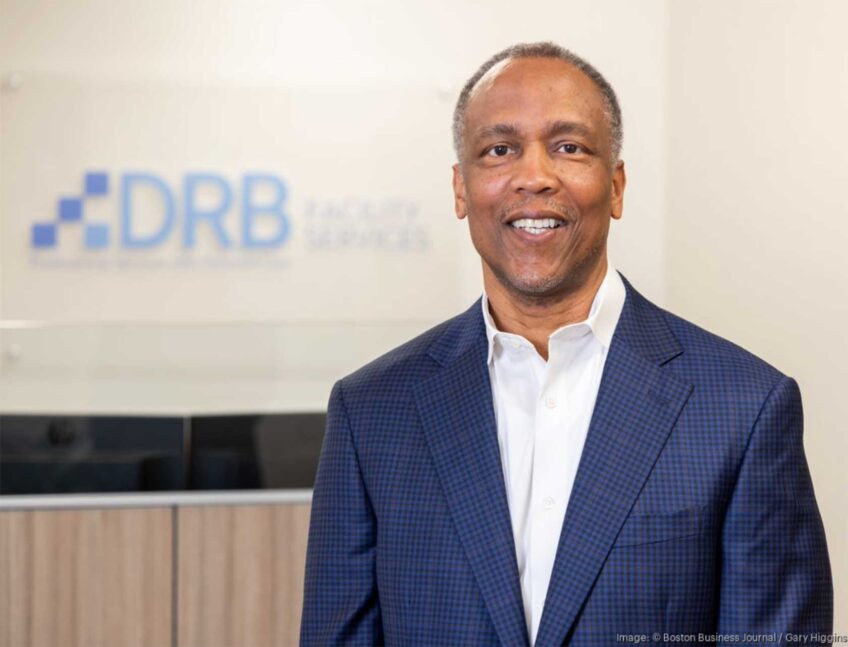Building a smart, bold, accessible and equitable SBA
Inclusive entrepreneurship is happening NOW in the Bay State
It’s an exciting time to be an entrepreneur in the Bay State, with a supportive ecosystem anchored by city, state and federal partnerships that help to ensure inclusive entrepreneurship in urban communities.
Have you been to a Café Night at the Roxbury Innovation Center? Every month, you’re invited to meet fellow dreamers — entrepreneurs, innovators and people who can help you reach your goals. There’s a new entrepreneurship epicenter growing, right in the heart of Roxbury’s Dudley Square. So what are you waiting for? Start by drafting a business plan and then schedule a session with a SCORE Boston mentor at the RIC. If you have an innovative idea, there’s a high-tech startup accelerator, Smarter in the City, right around the corner. Supported by SBA’s Growth Fund Accelerator Competition, they are preparing to kick off a third cohort of startups this fall. Inclusive entrepreneurship is taking shape in the heart of Boston’s urban communities.
On the web
Café Night at the Roxbury Innovation Center: http://roxburyinnovationcenter.org/cafe-nights-ric
SCORE Boston: https://boston.score.org
Smarter in the City: www.smarterinthecity.com
SBA’s Growth Fund Accelerator Competition: http://bostinno.streetwise.co/2014/09/08/boston-accelerator-smarter-in-the-city-wins-50000-growth-accelerator-fund-grant
City of Boston Small Business Plan: www.cityofboston.gov/images_documents/160330%20Boston%20Small%20Business%20Full%20Report%20-%20Web%20(144dpi)_tcm3-53060.pdf
New tools
Helping the process along are several new tools and platforms. The City of Boston recently released its first Small Business Plan — a roadmap that will guide the city’s approach to supporting small businesses. The plan’s development emerged from a collaborative process that included a series of interviews, roundtable meetings and feedback from small business community members, representing diverse sectors that included industrial operations, women and minority-owned businesses and startups. The plan outlines priorities and needs of Boston small businesses, and strategies to address the gaps between them, to foster a healthier Main Street economy. A centralized small business center, 311 hotline and web portal are among the new features that will help entrepreneurs navigate resources.
Meanwhile, the Commonwealth of Massachusetts recently became the first state in the nation to recognize LGBT-certified businesses as eligible for meeting the state’s supplier diversity commitments. The state certification procurement program also expanded diversity opportunities by increasing benchmarks and new certification categories that increase opportunities for businesses owned by people with disabilities, veterans, minorities and women.
Underserved communities, particularly new Americans and immigrant entrepreneurs, continue to be a strategic focus for SBA Massachusetts. The SBA has formed strategic partnerships with organizations already serving these populations, such as the Brazil New England Chamber of Commerce, Roxbury Innovation Center, Roxbury Community College, Asian Real Estate Association Boston, NAAAP Boston and Initiative for a Competitive Inner City/Inner City Capital Connections. In recent years, the Massachusetts district office also has reported a steady rise in underserved community lending — a trend that continues to show positive increases this year. With roughly 150 lending institutions in the SBA Massachusetts network, as of June 2016 it saved Bay State entrepreneurs more than $1.1 million in administrative fees and leads the nation in loan approval of $50 thousand or less.
Underserved Communities
Local SBA lending data reveals a sharp increase in the number of (7a) loan approvals within the African American category. Last fiscal year’s increase (FY15 vs. FY14) jumped 20 percent — from 55 loans in FY14 to 66 in FY15. This year, loan approvals already have increased by 60 percent — 80 loans through the first three quarters, compared to 50 last year. However, much more work and progress are needed.
To help assure relevance and viability, SBA Administrator Maria Contreras-Sweet recently appointed nine new members of the Council on Underserved Communities (CUC) Advisory Board. The ten-member advisory board represents a diverse range of backgrounds, with experience in finance, community organizing, advocacy and entertainment.
Created in 2011, the CUC Advisory Board provides advice and counsel on initiatives to strengthen support for small businesses in underserved communities, examines the obstacles that such businesses continue to face and delivers perspectives from underserved groups regarding the efficacy of SBA programs and services.
In commemoration of this convening, Administrator Contreras-Sweet said: “The Council on Underserved Communities is an important part of our ongoing effort to expand SBA services in order to better reach underserved communities and rural areas, as well minorities, women, veterans and people with disabilities. The work of the Council helps inform our mission and move our agency forward, particularly for socially, economically and geographically disadvantaged small business owners. I look forward to working with this highly qualified and impressive group of new members and appreciate their willingness to serve.”
Robert H. Nelson was appointed district director of SBA’s Massachusetts District Office on November 26, 2007. The district office is located in Boston, with a branch office in Springfield, Massachusetts. As district director, Nelson is responsible for the effective delivery of SBA’s financial and business development programs with a mission to counsel, assist and protect the interest of small business statewide in order to maintain and strengthen the economy. He has 25 years of federal service,19 of which have been with the SBA.






